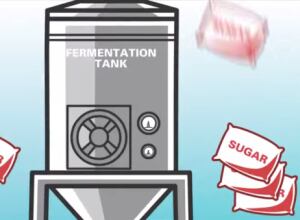Speaking to FoodNavigator-USA at the IFT annual meeting and expo, CEO Christian Kopfli said: “We’re shooting for 2019 or 2020. We’re working as hard as we can, we’re actually talking with partners to try and accelerate this introduction, as this has so much potential that we really need a joint effort to bring this out.”
The sweetener, which is around 100 times sweeter than sugar, and is present in “foods you could buy in a grocery store," immediately got his team excited because it lacked the bitter aftertaste and linger associated with most high intensity sweeteners, claimed Kopfli.
“The reason we are extremely excited about it is the taste… it is so similar to sugar. One of the biggest advantages is that it has no aftertaste … if you’re looking at the current solutions that are on the market, oftentimes they have linger, and side tastes. Our new all natural sweetener doesn’t have this, and that’s why we are so excited.”
We might look at natural extraction and bioproduction
Asked about the production process – whether FlavorHealth plans to extract it from the source or produce it via microbial fermentation, he said: “At the end of the day it doesn’t only have to be good, it has to be cheap right? We’re looking at all options. It exists obviously in nature, so we are looking there at sources where could harvest it, but we are also looking at bio-production processes.
“My view is that we might even go for different avenues to get this into consumer products as different consumer segments ask for different solutions.”
From a labeling perspective, he said, “Consumers want to have transparency. When we’re looking at the naming, we’ll go to something that’s very transparent and reflects what’s naturally in there.”
Asked about the regulatory framework, he said the likely route would be a GRAS (generally recognized as safe) determination rather than a food additive petition: “We’re pretty sure it will be a GRAS determination – a relatively quick but also very safe pathway to commercialization.”
Read more about FlavorHealth HERE.

While fermentation is considered to be a 'natural' process for producing flavors, it is not clear whether consumers or plaintiff's attorneys would consider sweeteners produced this way to be as 'natural' as those derived directly from the stevia leaf or monk fruit, which can be described as leaf or fruit extracts on food labels.
Cargill and Evolva’s EverSweet sweetener, which is produced via a fermentation process using a genetically engineered baker’s yeast, for example, can be described on food labels as Reb D +M or steviol glycosides, but not as ‘stevia leaf extract.’
Senomyx is also developing siratose, a new natural sweetener found from a component in monk fruit (click HERE for more details) that it plans to produce via a fermentation process.
